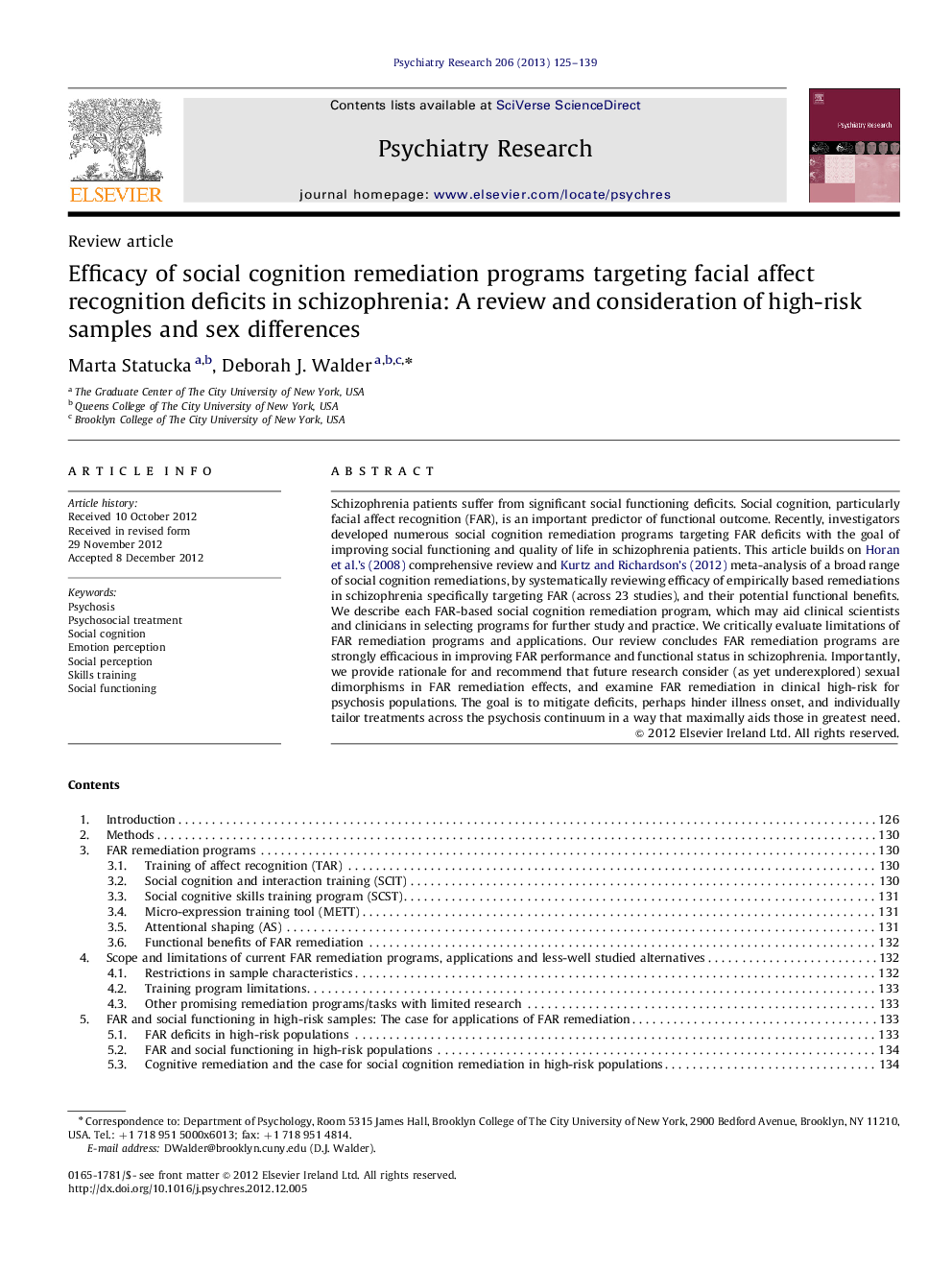| Article ID | Journal | Published Year | Pages | File Type |
|---|---|---|---|---|
| 331945 | Psychiatry Research | 2013 | 15 Pages |
Schizophrenia patients suffer from significant social functioning deficits. Social cognition, particularly facial affect recognition (FAR), is an important predictor of functional outcome. Recently, investigators developed numerous social cognition remediation programs targeting FAR deficits with the goal of improving social functioning and quality of life in schizophrenia patients. This article builds on Horan et al.'s (2008) comprehensive review and Kurtz and Richardson's (2012) meta-analysis of a broad range of social cognition remediations, by systematically reviewing efficacy of empirically based remediations in schizophrenia specifically targeting FAR (across 23 studies), and their potential functional benefits. We describe each FAR-based social cognition remediation program, which may aid clinical scientists and clinicians in selecting programs for further study and practice. We critically evaluate limitations of FAR remediation programs and applications. Our review concludes FAR remediation programs are strongly efficacious in improving FAR performance and functional status in schizophrenia. Importantly, we provide rationale for and recommend that future research consider (as yet underexplored) sexual dimorphisms in FAR remediation effects, and examine FAR remediation in clinical high-risk for psychosis populations. The goal is to mitigate deficits, perhaps hinder illness onset, and individually tailor treatments across the psychosis continuum in a way that maximally aids those in greatest need.
